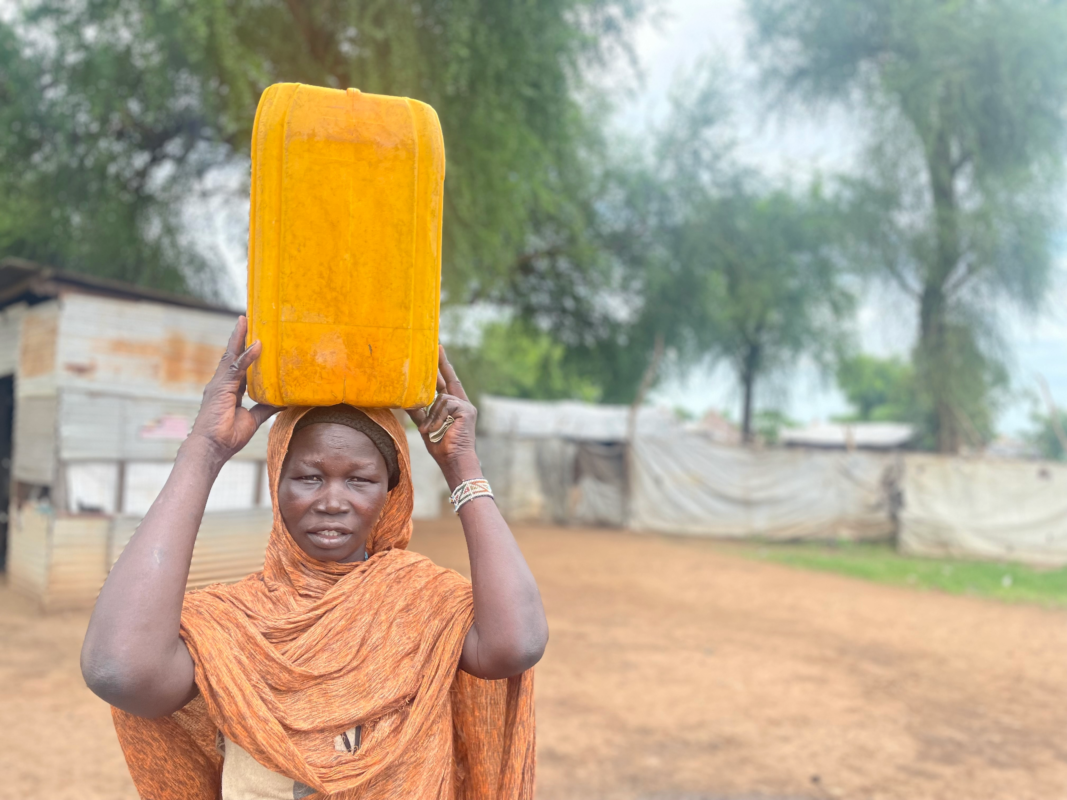The process of collecting water is time-consuming and fraught with difficulties for many camp residents. “I travel to the water point and back home. This challenge has made it difficult for my family and me to always have a steady water supply in the house. It also affects our ability to practice consistent hygiene, as water is essential for washing hands and keeping clothing and cooking utensils clean.”
The impact of these challenges extends beyond daily inconveniences to poor health and wellbeing. “My health has changed ever since I arrived here. I often get sick with malaria and typhoid,” says Zeriba, who recently underwent surgery for appendicitis.
However, despite the difficulties, access to water has brought some semblance of normalcy to Zeriba’s life and that of the community. “The distance to the water point is not unbearably long, which ensures we can still have water at home,” she says. Additionally, having water available has allowed her to maintain a small kitchen garden, supplementing their limited food supplies.
Since 2012, the water systems in Doro Camp have been vital, yet they are now facing significant challenges. Originally intended as emergency infrastructure, our current water supply allows us to provide each person with approximately 10 liters per day. However, with a population exceeding 200,000, this amount is barely sufficient for their needs.
To ensure everyone can access safe water, we urgently need more support to maintain and improve these systems and provide holistic services to support communities.

